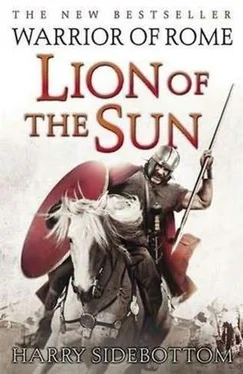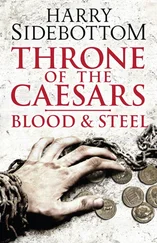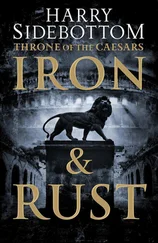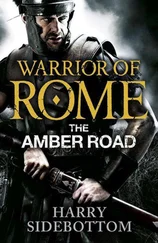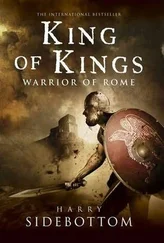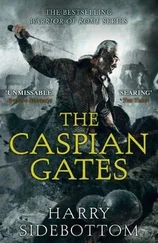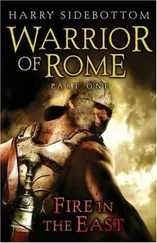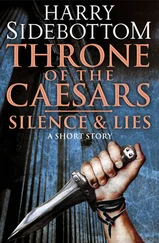Harry Sidebottom - Lion of the Sun
Здесь есть возможность читать онлайн «Harry Sidebottom - Lion of the Sun» весь текст электронной книги совершенно бесплатно (целиком полную версию без сокращений). В некоторых случаях можно слушать аудио, скачать через торрент в формате fb2 и присутствует краткое содержание. Жанр: Исторические приключения, на английском языке. Описание произведения, (предисловие) а так же отзывы посетителей доступны на портале библиотеки ЛибКат.
- Название:Lion of the Sun
- Автор:
- Жанр:
- Год:неизвестен
- ISBN:нет данных
- Рейтинг книги:5 / 5. Голосов: 1
-
Избранное:Добавить в избранное
- Отзывы:
-
Ваша оценка:
- 100
- 1
- 2
- 3
- 4
- 5
Lion of the Sun: краткое содержание, описание и аннотация
Предлагаем к чтению аннотацию, описание, краткое содержание или предисловие (зависит от того, что написал сам автор книги «Lion of the Sun»). Если вы не нашли необходимую информацию о книге — напишите в комментариях, мы постараемся отыскать её.
Lion of the Sun — читать онлайн бесплатно полную книгу (весь текст) целиком
Ниже представлен текст книги, разбитый по страницам. Система сохранения места последней прочитанной страницы, позволяет с удобством читать онлайн бесплатно книгу «Lion of the Sun», без необходимости каждый раз заново искать на чём Вы остановились. Поставьте закладку, и сможете в любой момент перейти на страницу, на которой закончили чтение.
Интервал:
Закладка:
'Easy, boys.' Maximus's words were soft. The troopers relaxed. Demetrius sighed with relief.
They mounted up and got moving. They rode across a small meadow where three paths came together. Demetrius balled his fist, thumb between index and forefinger, in a symbolic gesture to avert evil. Crossroads were always bad places; you only had to think of Oedipus encountering his father. A crossroads where three paths converged, and darkness; it was hard to imagine a situation more likely to draw the terrible three-headed goddess Hecate or her dreadful minions up from the underworld.
After they had traversed the meadow, the hills rose up again. In the unearthly light, the white rocks and black shadows rendered the slopes into shattered or crazed mosaics. Demetrius rode just behind Calgacus and Maximus. He felt safer near them. The soft gleam of Pale Horse sent his thoughts back to Ballista. How had it gone for him at the hands of the Persians? The northerner had defied Shapur the King of Kings for months at Arete, had slaughtered thousands of his warriors below the city walls. He had routed a Sassanid army at Circesium — the waters of the Chaboras had run red with eastern blood. Worse, much worse, he had defiled the sacredness of fire, which the Zoroastrian Sassanids worshipped, by burning the corpses of their dead after the battle. It was unlikely things had gone well for him.
Maximus and Calgacus had their heads together and were muttering low. The Hibernian pulled Pale Horse out of line. As he passed, Demetrius smiled over. Maximus made no response; his eyes were far away, as distant as those of a distracted child. The grey horse standing there turned Demetrius's thoughts yet again to Ballista. On that scorched hillside, moments before they had left, Ballista had embraced Maximus, had whispered something in his ear. The Hibernian had promised he would die before he let anyone harm Ballista's two sons. At the memory, Demetrius felt a stab of jealousy. He pushed it away as unworthy. He was not a fighter. He did not have man-killing hands. Of course Ballista would ask his old companion in arms to put his body between the hostile blades and the bodies of his sons. Isangrim had just turned eight and Dernhelm was not yet two; both were beautiful, and both now fatherless.
A flash of movement to his right caught Demetrius's eye. He stared hard. Nothing: just rocks and shadows. He was looking away when he glimpsed it again. Yes, there it was. High up on the slope. About a discus throw away. A movement. Then he saw it clearly: a dark figure, a man on foot moving parallel to them.
Demetrius looked round at his companions. No one else seemed aware of the follower on the hill. Maximus was nowhere in sight. When Demetrius looked back, it took a few moments to spot the shadow again. There he was. Shabby, grey-black clothes, with maybe a hint of red. He flitted from rock to rock. No noise came down from him. With a chill in his heart, Demetrius saw the follower's face was dark, terribly dark. It was black. Grey-eyed Athena watch over us, he mouthed. This was no mortal that stalked them but a daemon or ghost.
Some ghosts were thin, insubstantial wraiths. If you tried to grab them, they slipped through your arms like smoke. Such ghosts were an annoyance, but they could not harm you. The daemon on the hill was not one of them. This ghost was one of the terrible ones. This was an embodied daemon, something terrible and dangerous, something like Lykas, who had slain old and young alike in Temesa; like Polykritos the Aitolian, who after nine months had risen from his tomb to seize his hermaphrodite son and tear him limb from limb, then devoured his body.
Demetrius fought down the rising tide of horrible ghost stories within him. Sometimes wide reading and a retentive memory could be a curse. He peered wildly about. The faces of the others betrayed nothing. Where was Maximus?
Demetrius, urging his mount forward to come alongside Calgacus, gazed again at the thing on the hill. As he did so, it changed shape, dropping to all fours. Swiftly, it ran like a wolf or a dog to the next cover. From out of the darkness, clear even above the noise of the horsemen, came the bray of a donkey. The beast reared up, briefly standing on two legs — looking around, sniffing the air — before slipping to the ground and slithering like a snake behind a rock.
Pallas Athena and all the gods of Olympus hold your hands over us. Demetrius was too scared to pray out loud. This was worse than a daemon. Far, far worse. They were being stalked by a shape-changing empusa, one of Hecate's ghastly servants from the underworld. Hecate, the dark goddess, none of whose desires were ever denied by Zeus.
Demetrius had read in Philostratus that the holy man Apollonius of Tyana had once routed an empusa with just a shout. Demetrius was too scared to shout. Anyway, would a shout not bring the Sassanids down on them?
The young Greek leant over, almost overbalancing from the saddle in his anxiety. He grabbed Calgacus's arm.
'Quiet, you young fool,' the Caledonian hissed.
Eyes wide, Demetrius gazed, silent but uncomprehending. Why was Calgacus doing nothing? Where was Maximus? Why did these barbarians not do something? Had they no concept of what an empusa could do?
As they rode slowly on, Demetrius saw that Calgacus was watching the thing on the hill out of the corner of his eye. The Caledonian was rigid with expectation. His mount tossed its head as it sensed the tension.
Up on the hill, higher up the slope, there was another movement. Another dark shape slipped over the skyline. It crept slowly down towards where the first was hidden.
Could there be two of the creatures? Darkness, fatigue and fear were taking their toll on Demetrius. Gods below, what if the things hunted in packs?
The first dark shape must have heard or sensed something. It suddenly stood and scanned the hillside. Then, quick as a flash, it sprang and raced away to the west. The other figure leapt up in pursuit. Stones slid out from under their feet. Dislodging others, they bounced in showers down towards the path.
Calgacus booted his horse. It clattered down the path. After about fifty paces, the Caledonian brought it skidding to a halt. Belying his age, he threw himself off its back, tugged a couple of javelins from the holster on the saddle and started up the slope to cut off the fugitive.
Seeing the new threat, the fugitive tried to veer back up the incline. It was no good: the second figure was already in position, ready to block any escape in that direction.
Like Celtic hounds, the two pursuers coursed their prey over the stony slope. They turned him this way and that, ever closing.
'Stop or I will run you through,' Calgacus yelled in Greek. His prey raced on. The old Caledonian drew back his arm and cast a mighty throw. The javelin winged over the fugitive's shoulder. A spark flashed as it glanced off a rock.
The fugitive pulled up dead in his tracks. Calgacus grabbed his arms, twisted them behind his back, pushed him down towards the waiting horsemen.
Maximus rejoined the men moments later. 'Fuck, that nearly killed me,' he panted.
Relieved beyond words, Demetrius studied the prisoner. No feast for the eyes, but he was no daemon or empusa: he was a small man, face blackened, wearing the pelt of a dark-grey wolf and a cap of weasel skin. He too was breathing heavily.
Quickly and efficiently, Maximus searched the prisoner for weapons. Finding none, he stepped back and kicked the man's legs from under him.
'Don't kill me! Dear gods, please don't kill me!' The man spoke in Latin. It was oddly accented, like something unpractised. He was terrified. He cowered on the ground, teeth chattering.
'Courage,' said Maximus. 'Death is your last worry.'
'I am just a soldier, a Roman like you. Please don't kill me!'
Читать дальшеИнтервал:
Закладка:
Похожие книги на «Lion of the Sun»
Представляем Вашему вниманию похожие книги на «Lion of the Sun» списком для выбора. Мы отобрали схожую по названию и смыслу литературу в надежде предоставить читателям больше вариантов отыскать новые, интересные, ещё непрочитанные произведения.
Обсуждение, отзывы о книге «Lion of the Sun» и просто собственные мнения читателей. Оставьте ваши комментарии, напишите, что Вы думаете о произведении, его смысле или главных героях. Укажите что конкретно понравилось, а что нет, и почему Вы так считаете.
